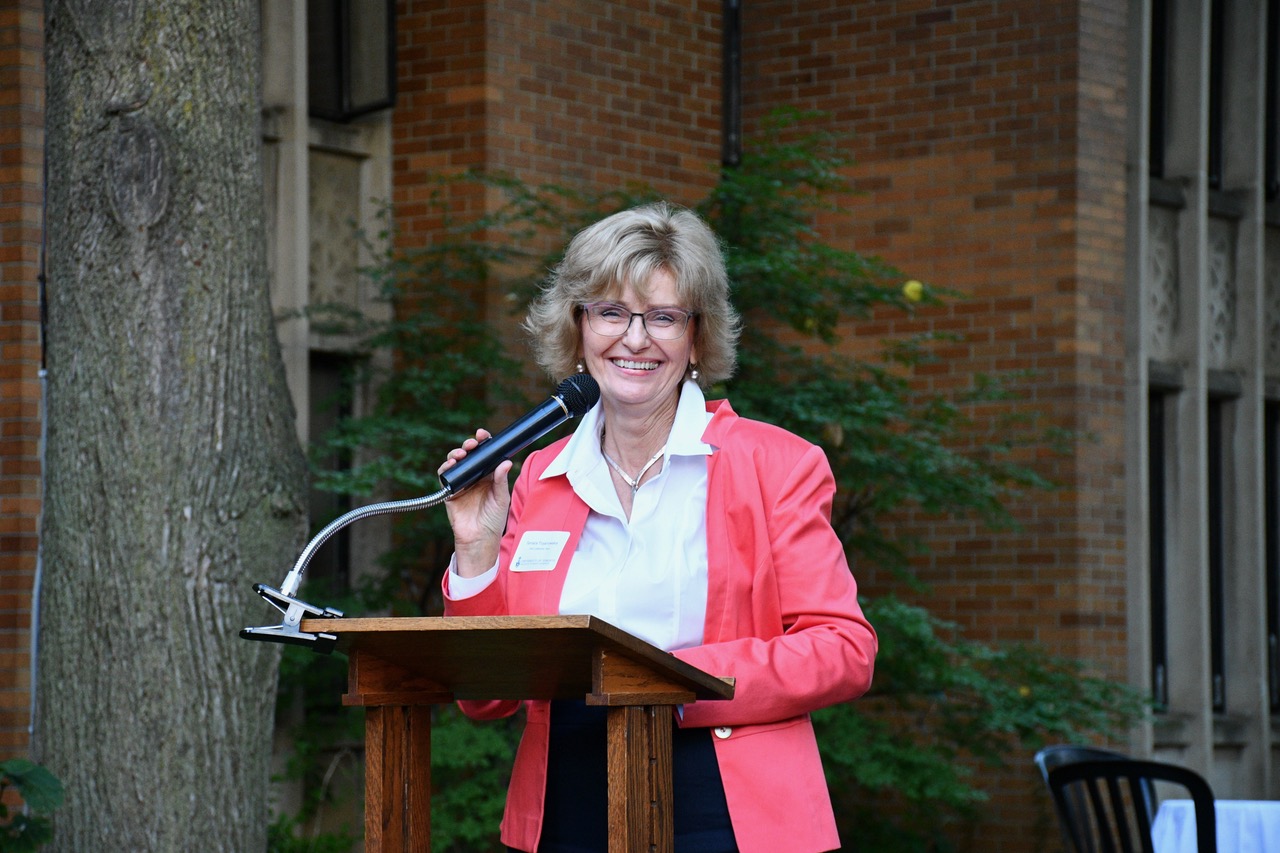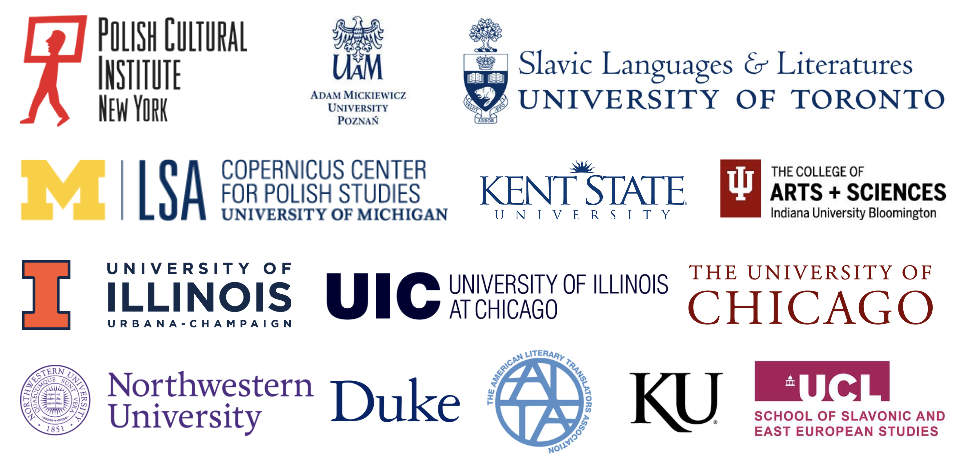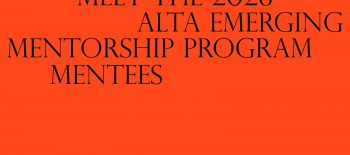Sławomir Mrożek with Tamara Trojanowska – Encounters with Polish and Ukrainian Literature
S4E6 and all video recordings are available on our YouTube.
Encounters with Polish Literature is a video series for anyone interested in literature and the culture of books and reading. Each month, host David A. Goldfarb will present a new topic in conversation with an expert on that author or book or movement in Polish literature. More about the Encounters with Polish Literature series and the timeline.
Sławomir Mrożek (1930-2013) was a satirist best remembered for his absurdist plays, humorous stories, fables, cartoons and drawings. Like many writers of his generation, he was caught up in the optimistic progress toward Communism after World War II, but was soon disillusioned and became a key dissenting voice after the death of Stalin in 1953, especially during the 1960s and ‘70s in the years leading up to the Solidarity uprising. His play, Tango (1964), about the conflict of generations, was his breakout success and has since entered the canon of twentieth-century European theater. His work reflects the influences of Stanisław Ignacy Witkiewicz (“Witkacy”) and Witold Gombrowicz who were discussed in the first season of this series, as well as Stanisław Wyspiański, Tadeusz Kantor, Jean Anouilh, and Samuel Beckett.
In this episode, we focus on two of his major plays, Tango and Emigrants (1974) in light of his biography, his provincial origins and life abroad, and his historical context from the Thaw to the end of Communism in Poland, and what meaning these works may have in the post-Communist era. This episode and the next one on Tadeusz Konwicki consider the coded language and use of allegory in this period while censorship was still in effect, but there was a thriving underground and émigré publishing industry known as the “second circuit” (drugi obieg), and writers had a great deal to say that could not legally appear in the official press.
Sławomir Mrożek in English Translation:
The Ambassador. Tr. Sławomir Mrożek and Ralph Mannheim. Institute for Contemporary Eastern European Drama and Theatre. Playscripts in Translation Series, No. 6. New York: A CASTA Publication, 1984. Check research libraries for availability, possibly through interlibrary loan.
The Elephant. London: Penguin Modern Classics UK, 2010.
Ed. with an Intro by Daniel Gerould. The Mrożek Reader. Tr. Konrad Syrop, Nicholas Bethell, Lola Gruenthal, Ralph Mannheim, Teresa Dzieduszycka, Henry Beissel, and Jacek Laskowski. New York: Grove Press, 2004.
Six plays by Sławomir Mrożek: The Martyrdom of Peter Ohey, Enchanted Night, The Police, Out at Sea, Charlie, The Party. New York: Grove Press, 1967.
Striptease, Repeat Performance, The Prophets: Three Plays. Tr. Lola Gruenthal, Ralph Mannheim, and Teresa Dzieduszycka. New York: Grove Press, 1972.
Striptease, Tango, Vatzlav: Three Plays. Tr. Lola Gruenthal, Ralph Mannheim, and Teresa Dzieduszycka. New York: Grove Press, 1981.

A graduate of the Drama Centre at the University of Toronto (Ph.D.) and of Theatre Studies at the Jagiellonian University in Kraków (MA), Tamara Trojanowska has also formerly held an Oxford University scholarship and an internship at the Royal Dramatic Theatre in Stockholm. She has taught at universities in Poland, Canada, and the United States, returning to the University of Toronto as a faculty member in 1998. Since then, she has directed the Polish Language and Literature Program at the Slavic Department, strengthening its profile and presence in North America, the University College Drama Program (2008-2012), and the Center for Drama, Theatre and Performance Studies (2017-2021). She now serves as Vice-Dean of Faculty and Academic Life in the Faculty of Arts and Science. Her current research focuses on the intersections of 20th and 21st-century drama and theatre with history and religious thought, highlighting issues of identity and transgression. Her latest book publication, co-edited with Joanna Niżyńska and Przemysław Czapliński and entitled A History of Polish Literature and Culture: New Perspectives on 20th and 21st Centuries, includes her extensive analysis of transgressive practices in Polish drama and theatre. She has also contributed a chapter on this subject to Theatermachine: Tadeusz Kantor in Context (eds. Magda Romanska and Cathleen Cioffi, 2020), with her investigations of the dramatic and the sacred resulting in a new selection of and an extensive introduction to the plays of Roman Brandstaetter (Dzień gniewu. Dramaty, 2016).
Bartek Remisko, Executive Producer
David A. Goldfarb, Host & Producer
Natalia Iyudin, Producer
Photo: Tamara Trojanowska
Image courtesy of Tamara Trojanowska
Lead image: Sławomir Mrożek by © M.Łepecki
Image courtesy of Wydawnictwo Literackie





